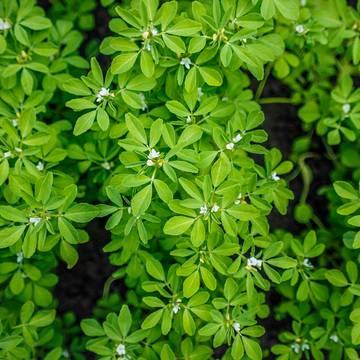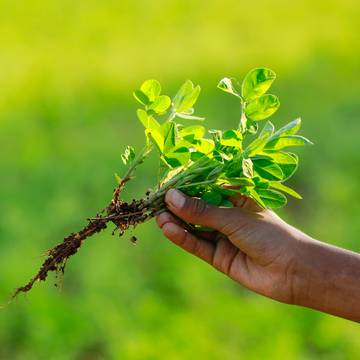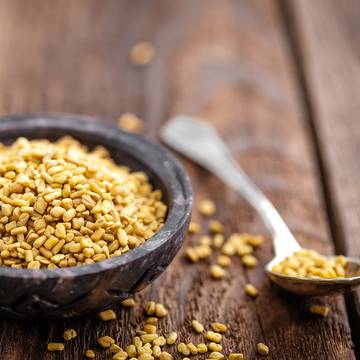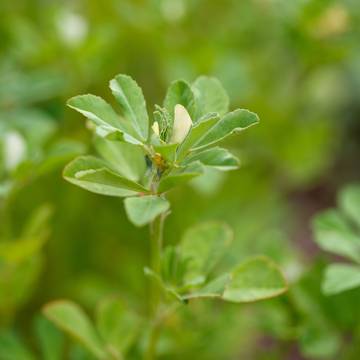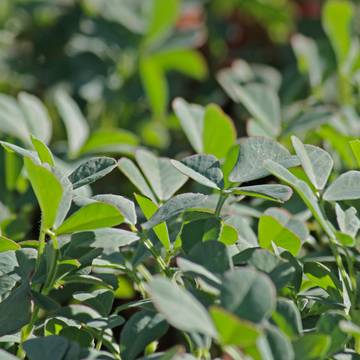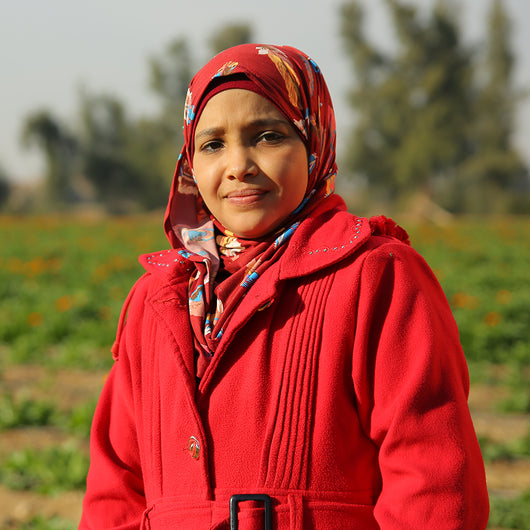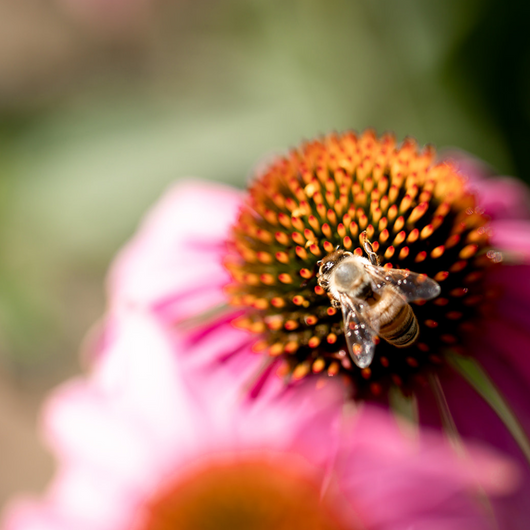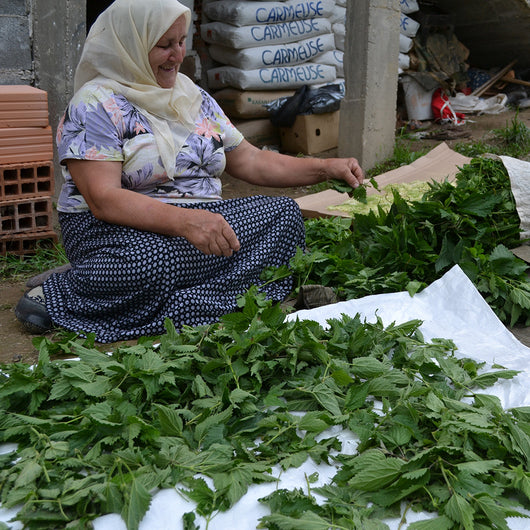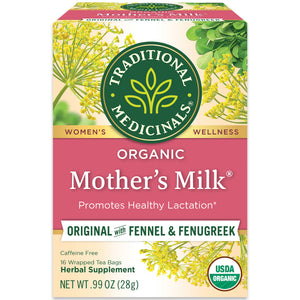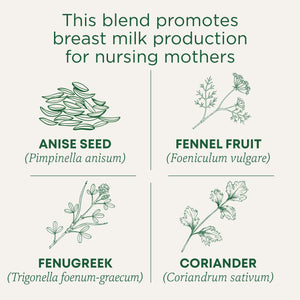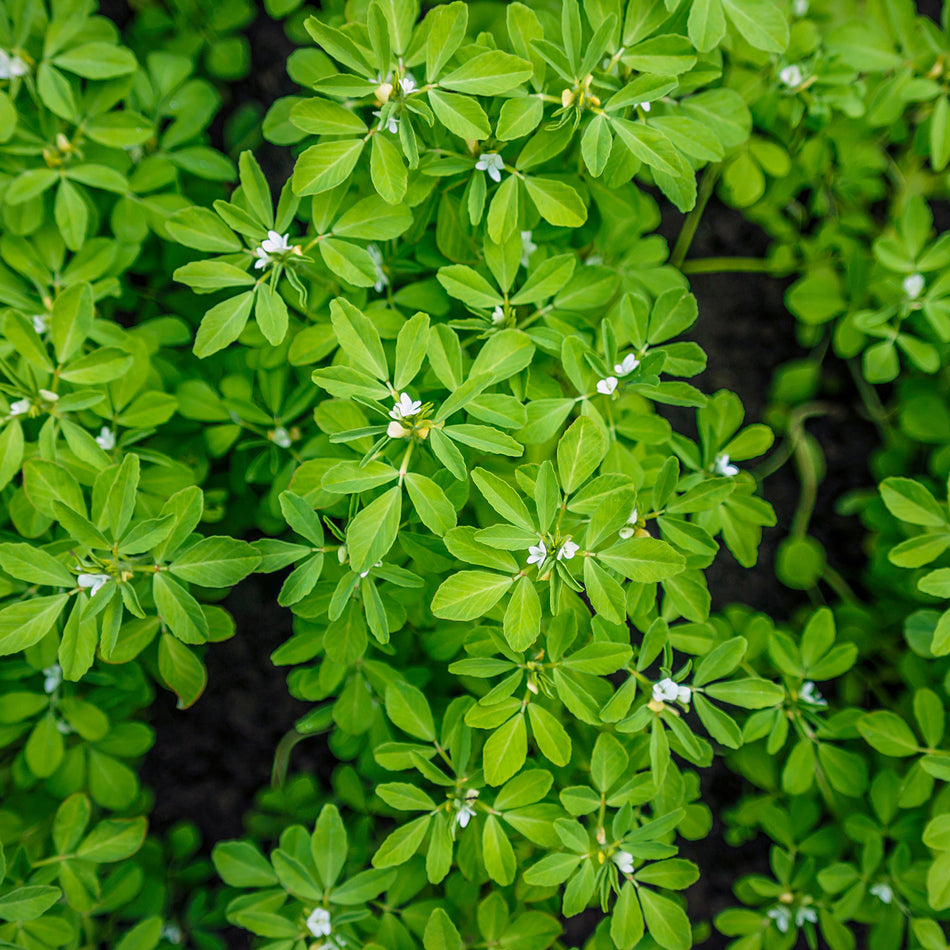
Fenugreek
Trigonella foenum-graecumFenugreek has been used cross culturally for thousands of years in Europe, Asia, and beyond for its nutritive properties and ability to promote healthy digestion, milk production, and overall wellness.*
Fenugreek, the perfect ally for breastfeeding parents.
What are the Benefits of Fenugreek?
Fenugreek’s nutritive leaves and medicinal seeds are commonly used across North Africa, Asia, and Europe for their unique flavor and whole-body benefits.
The leaves, a.k.a. “kasuri methi” in India, are rich in flavor, fiber, and are great for gut health.* Fenugreek’s honey-colored seeds on the other hand, are known as herbal galactagogues, a special class of botanicals that possess the power to encourage breastmilk supply after childbirth.* In both Traditional Eastern Medicine and Ayurveda, this herb is used to warm and balance out cooler constitutions through its bitter and cleansing properties.
Folklore & Historical Use of Fenugreek
Fenugreek leaves are commonly used in many traditional foods like “aloo methi,” a potato dish in India, and “ghormeh sabzi” an herb stew that’s known as the national dish of Iran. The whole plant is commonly used in kitchens and herbal apothecaries across continents, and charred seeds have been found in Tell Halaf, Syria, that date all the way back to 4,000 B.C.
Ancient records reveal Romans flavoring wine with fenugreek and growing it as a staple food. Fenugreek is common in Jewish cuisine and is often served during Rosh Hashanah to bring in the new year. It’s believed that eating the seeds is a way of increasing blessings for the year ahead.
Botanical Description & Habitat
This ancient herb is native to Eastern Europe and Western Asia but now grows worldwide, most notably for the herb trade in Rajasthan, India. However, this member of the legume family is quite easy to grow in your own backyard. It’s also a great cover crop for when you need to nourish and add more nitrogen back into the soil.
Simply start the seeds after the last frost, or alternatively, start them indoors. They should germinate in about a month’s time and thrive during the summer season. Fenugreek loves moist, well-drained soil and about 4-5 hours of sun daily.
When To Use Fenugreek
Take consistently after childbirth to get that milk flowing.
The Business of Sustainable Plants
Our business is rooted in plants, and for us, it’s a business imperative that we care for the ecosystems where these plants live and thrive. We believe that everything is interconnected, which means supporting ecosystems and the farmers and collectors who harvest and gather our herbs. Finding opportunities to reduce or eliminate emissions at the source, we support organic and regenerative farming practices as well as voluntary certifications like Organic and FairWild. These ensure the absence of pesticides, herbicides, as well as the ongoing sustainability of wild collection, and the health and livelihoods of the collectors who forage. Josef Brinckmann, Traditional Medicinals’ Research Fellow, Medicinal Plants and Botanical Supply, asserts, “Everyone has a role to play in preserving biological diversity. One way of doing that is by equitably supporting the local people to serve as stewards of the land.”
It Starts with Organic
We choose to source organic because we believe in the positive impacts it has on environmental sustainability, biodiversity, and overall ecosystem health. Organic helps us increase transparency while prioritizing consumer well-being and farmer success, which is key to producing the high-quality herbs we source. In 2021, we procured 2.73 million pounds of certified organic herbs, over 99.7% of our total botanical herbs purchased. Volumes were down slightly from FY20 due to timing of inventories received.
The impact from organic farming creates a vital ecosystem through improved soil health, water quality, pollinator habitats, and biodiversity. Organic farms also have increased carbon sequestration potential through long-term carbon storage in the soil, helping to mitigate climate change.
One of the benefits of organic that we most value is farmer health. We care deeply about the people who produce our herbs, ensuring that they are not exposed to synthetic chemicals found in conventional agriculture.
Fair Trade
We believe that everyone deserves a fair wage for hard work. That’s one of the reasons why we’re committed to fair trade. Traditional Medicinals® is a registered Fair Trade “brand holder”, “licensee” and “manufacturer,” and our products are certified by Fair Trade USA, an independent third-party certifier. We were an early adopter of Fair Trade, having launched our first fair trade tea product in 1998, just one year after Fairtrade International (FLO) was established. We continue to work closely with our network of producers to help them to implement fair trade standards and get certified.
Mother's Milk® Tea
Additional Information
Important Precautions:
If pregnant or breastfeeding, please consult your lactation consultant, midwife or healthcare practitioner prior to consuming Mother’s Milk products.
Legal Disclaimer:
The information and other content in this article are designed to provide a general overview of the botany, cultural history, and traditional uses of this herb. It is not intended and should not be construed as health advice. Every person is unique and you should consult with your health care provider before using any herbal product or supplement.

